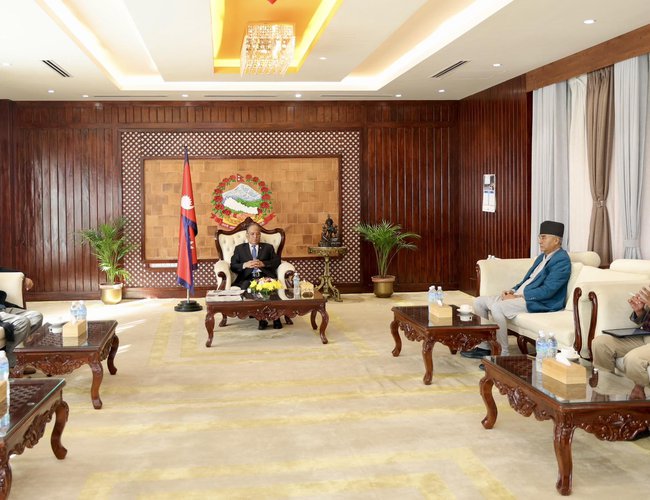
With the filing of nominations by the candidates of major political parties including the ruling alliance, the month-long dispute over who will contest the elections for 19 vacant seats has come to an end.
Given the current scenario and position at the local, provincial and national levels, it is likely that the ruling alliance of Nepali Congress, Maoist Center, Nepali Congress, CPN-Unified Socialist and Madhesh-based Federal Socialist will sweep the elections.
Among the candidates, Nepali Congress leader Krishna Prasad Sitaula is one of the most senior who would like to contest the post of National Assembly Chairman.
Among the coalition, Nepali Congress is contesting in eight, Maoist Center 6 and CPN-UML and Madhesh-based parties two each. However, the main opposition CPN-UML has fielded 19 candidates, followed by the RPP.
The election to 19 vacant seats from all seven provinces is scheduled to be held on January 25 under the National Assembly Election, 2080.
According to the National Assembly Election Act, the electoral collage consisting of provincial assembly members, chiefs (mayor/chairman) and deputy chiefs (deputy mayor/deputy chairman) of local municipalities can vote in the election to be held for the National Assembly members.
According to the law, National Assembly members must be elected 35 days before their term expires.
Candidacy filing for the 19 vacant posts of National Assembly members scheduled for January 25 has already taken place.
Candidates have submitted their nomination papers to the Returning Officer's Office set up in the capitals of all seven provinces.
Election Commission spokesman Shaligram Sharma Poudel said that all necessary preparations and responsibilities have been completed before the registration of nominations.
Members of provincial assemblies, chairmen and vice-chairmen of rural municipalities and mayors and deputy mayors of municipalities are the voters in the election of NA members.
According to the law, 549 provincial assembly members and 2047 local leaders (mayors/chairmen and vice-mayors/vice-chairmen) have been registered as voters.
The weight of votes of the members of the Provincial Assembly has been set at 53, and the weight of votes of the chiefs and deputy chiefs of the communes/rural communes has been set at 19. The total weight of votes of the members of the Provincial Assembly is 29,097 and that of the chiefs and deputy chiefs is 28,462.
According to the Election Commission, the final list of voters was released on Sunday (January 7).
Candidates will receive their election symbols on January 13. One polling station and two polling centers have been set up in each province for the election.
Voting will take place from 9:00 a.m. to 3:00 p.m. on January 25. The term of one-third of the 59-member National Assembly expires every two years. Women, Dalits, persons with disabilities or minorities and members of other communities will be elected from different provinces and regions in this election.
Although efforts are being made to push the government forward, Prime Minister Pushpa Kamal Dahal Prachanda has shown a way to adapt and accommodate coalition partners for much-needed stability. By allowing space and flexibility in seat-sharing with major parties, Prime Minister Dahal is able to maintain unity among the ruling political parties.
- Budget Session Of Federal Parliament Commencing On Friday
- Apr 24, 2025
- 19th Democracy Day Being Observed Today
- Apr 24, 2025
- Hot Wave Likely To Occur In Terai Belt Of Lumbini Province
- Apr 24, 2025
- UAE's Deputy Prime Minister In Kathmandu; Bilateral Meeting Today
- Apr 23, 2025
- PM Oli Condemns Terrorist Attack In India
- Apr 23, 2025















